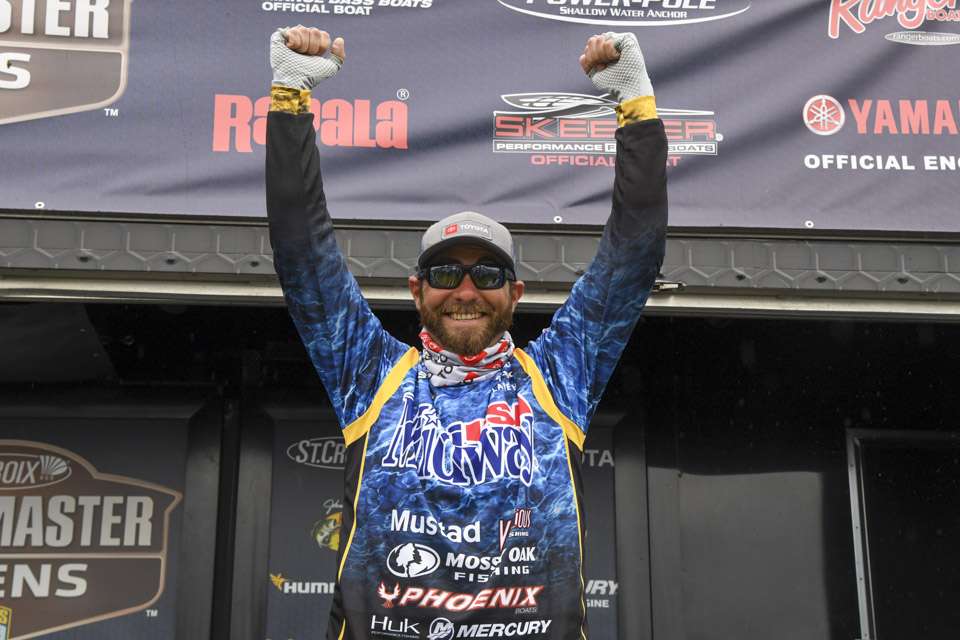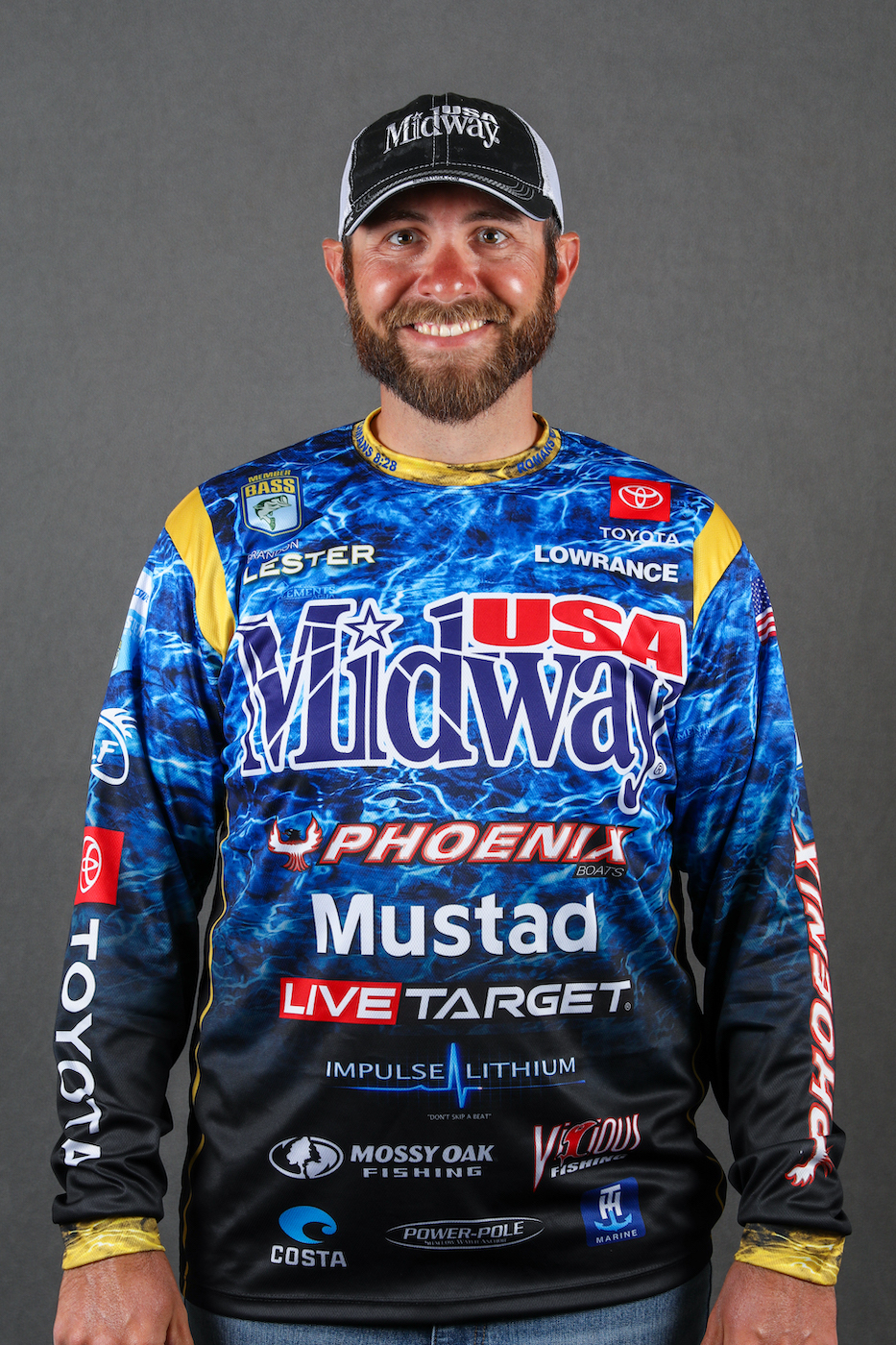
Throughout my professional career fishing the Bassmaster Elite Series and the Bassmaster Opens, I’ve been close to winning so many times. I have 20-something top 10 finishes. I have finished second, third. I’ve had the fish on to win tournaments, and I’ve felt like I’ve been on the fish to win tournaments. Something always seemed to happen, and it never worked out. You make friends out here on the road, you see guys win and you are happy for them.
But you can’t help but think, “When will it be my turn? When am I going to get to do that?”
So to finally seal the deal at the 2022 St. Croix Bassmaster Southern Open at the Kissimmee Chain and know what it feels like is pretty dang sweet. It was definitely a good feeling, and if you ask me, it was a long time coming.
It is also a huge deal to get that Classic berth sewed up. It almost means as much to me as the trophy does. And the Classic will be in my home state of Tennessee. I’m faced with a heck of an opportunity that not many people ever get. I get to fish an entire Elite Series season not having to worry about points at all. I’m sure there will be times when I try to take advantage of it. I would be dumb not to swing a little bit harder than I normally do.
This was the fifth Open I have fished on the Kissimmee Chain, and pretty much every season, we start down here in Florida. It is a place you better learn to fish because it is on the schedule every single year. So, I have spent a lot of time studying how these fish act down here, and what they do when it gets cold and when it gets hot. Looking at the extended forecast leading up to the tournament, I saw there was a really cold spell where it was getting into the high 40s, which is super cold for Florida. Then it was going to jump back into the 80s.
For the Opens, you can practice as long as you want, but I planned to give myself 2 1/2 days of practice, which is what we get for the Elite Series. I didn’t see the point of getting there right in the middle of the cold front because I knew it wouldn’t do me any good. I got there and put the boat in the first morning, and the water temperature was 53 to 54 degrees. I had four bites all day long, but I found one little spot where I might get a bite or two.
The second day of practice it started warming up, and I think I had maybe six bites. In the afternoon I went to Cypress Lake. The water temperature had warmed up to 58 degrees, and I started seeing empty beds everywhere. I started seeing a few fish up cruising like they were trying to get on those beds. I know from being down here that these suckers are coming. If there are this many beds and there are fish cruising around, when that water gets up to 64-65, a wave of them are going to load up in here. Sure enough that is what happened. That spot I found in Cypress was where I caught the majority of my fish.
On the first tournament day, I ran down to Lake Kissimmee to one spot I found that had a couple clumps of hydrilla where I had some bites on a Rat-L-Trap. I started there and caught three keepers on a ChatterBait. There were some mats close by, and I finished out my limit. About lunch time, I ran down to Cypress and culled three times. I caught a 5-pounder pitching around those beds. I wasn’t actually sight fishing, but I was letting the wind blow me down through there and pitching towards those light spots. I finished Day 1 with 14-13.
On Day 2 my plan was to do the same thing again. I had a late boat number the first day, and the second day I was boat 12. I ran all the way down there to Kissimmee, and they just weren’t biting good at all. I lost the first three fish that bit, and about 9:30 I pulled the plug. I got to Cypress about 10, and I had to leave around 1:15 p.m. to get back to check in on time. In that time, I caught 18 pounds pitching to those beds and caught a 5 3/4-pounder on my very last flip.
I fished down those line of beds, and my boat had drifted out a little. I started seeing some new beds. I told myself I needed to leave at 1:15. Well it clicked over to 1:16 and I was still seeing beds, andI told myself I had to keep going. At 1:17, I told myself I was going to flip one or two more beds. Sure enough, I flip up there and catch that big one. Without that fish, I’m not sure I would have made it to the Top 10.
Looking at the weather on Day 3, I knew there was no way I would be able to see those beds. They were doing some dredging in the canal, and the way the wind was blowing, it was blowing a mudline into that bank where I had been fishing. Sure enough I got there the morning of Day 3, and it looked like chocolate milk. I knew if I was going to catch them on the third day, I was going to have to find them during the tournament, and that is where experience paid off. If it was my first or second year, I probably would have completely spun out, I won’t to lie to you. But I just knew I had to go fishing and find them.
I ran across the lake where I knew the water would be clean, and I just started fishing down the opposite shoreline. I set my boat down on the outside of a hydrilla line in about the same depth range I had been targeting. In about five minutes, I saw a bass come up and blow up on bait. Two or three casts later I caught a small one. I sat right there on a 300-yard stretch and worked back and forth all day long.
Having the experience to know that what you did yesterday is completely done — that is the hardest thing to develop in competitive bass fishing. Fishing is an ever-changing sport. It changes by the hour, by the day; it just does. The only constant in fishing is change, and especially in Florida this time of year when you have fronts, winds and all that. Knowing when to hold them and fold them is a big deal, and an angler can only learn that with experience.
I’ve learned over time, if you can keep the wheels on the train and keep on trucking, most of the time it will work itself out.

